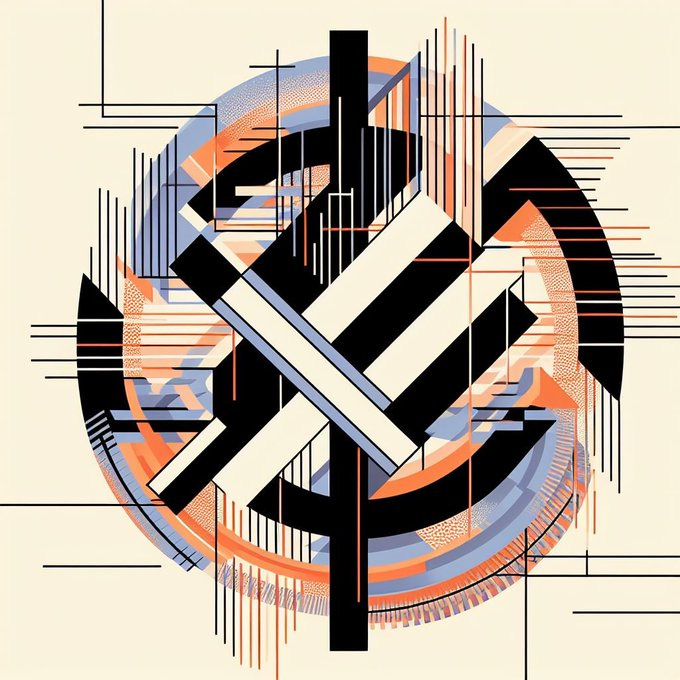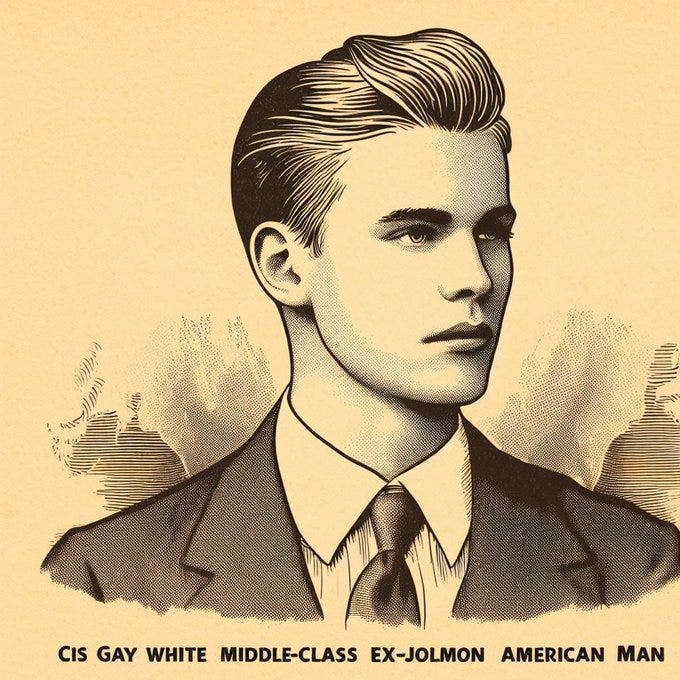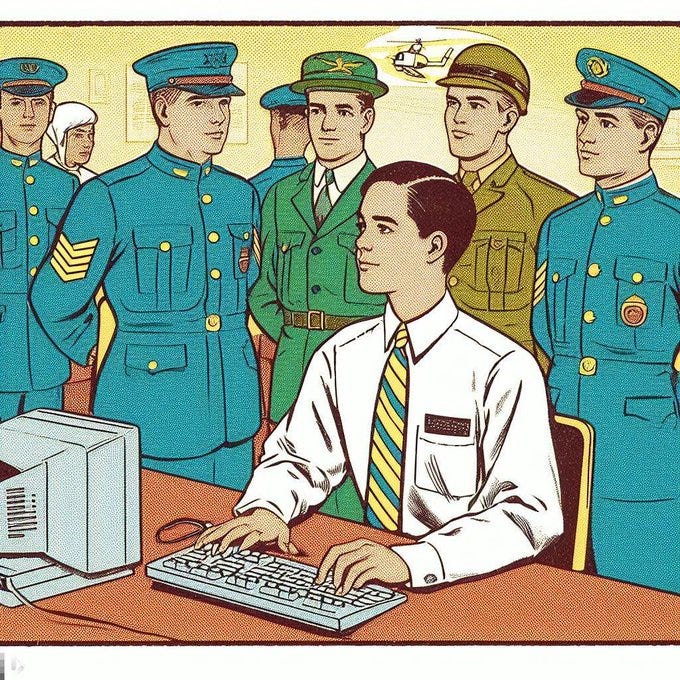Welcome to The Archive, a series of posts aimed at collecting my writing from scattered corners of the internet, then editing and republishing it on Substack. Generally speaking, these posts will be less formal and briefer than my written-for-Substack articles. If you prefer to receive only my new articles, you can choose whether to subscribe to this section separately.
Intersectionality is interesting: independent-minded liberals who reject much of progressive social justice still often use it as an example of an obviously true and useful concept.
I disagree.
Intersectionality, as described by its proponents:
The concept of intersectionality describes the ways in which systems of inequality based on gender, race, ethnicity, sexual orientation, gender identity, disability, class and other forms of discrimination “intersect” to create unique dynamics and effects. For example, when a Muslim woman wearing the Hijab is being discriminated, it would be impossible to dissociate her female* from her Muslim identity and to isolate the dimension(s) causing her discrimination.
All forms of inequality are mutually reinforcing and must therefore be analysed and addressed simultaneously to prevent one form of inequality from reinforcing another. For example, tackling the gender pay gap alone – without including other dimensions such as race, socio-economic status and immigration status – will likely reinforce inequalities among women.
There is a way, to be clear, in which it is adjacent to truth. It is true that different facets of an individual's identity interact in sometimes unpredictable ways, ways that can be greater than the sum of their parts, and ways that can create unique disadvantages. If that is where the concept of intersectionality started and ended, I would consider it true, but trivially so. I can give it more credit than that, even: I think its creation in the context of analyzing feminism through the lens of black women interested in it made sense and yielded some useful insights.
But intersectionality is designed with a view only towards different forms of perceived oppression, not through any of the rest of what makes an identity. Kimberlé Crenshaw, when designing it, did so to explore the experience of black women and their experience of both racism and sexism. It centers on discrimination law and presupposes a clearly defined matrix of oppression, marking groups as either dominant or oppressed. Men? Dominant. Women? Oppressed. White people? Dominant. Black people? Oppressed. Straight people? Dominant. Gay people? Oppressed. In both of these structural elements, it flattens and distorts human experience, making us into caricatures of ourselves. I wouldn't go so far as to say it's outright false. But it's misleading. It clouds as much as it elucidates.
I find this immensely frustrating, because I think approaching a similar idea from a sounder background could be powerful, and would be directly useful for me.
To illustrate, I'll lean on my own experience, and the degree to which intersectionality as written and used is insufficient to understand it and an adjacent concept could yield insight. I'll start with identity labels, attempt to provide an "intersectional" analysis of my experience, then wrestle towards what a proper description would take.
I am, per the labels of one who would use intersectionality as their framework: a "cis gay white middle-class ex-Mormon American man". Start, as one instinctively does from within that framework, by marking each label as privileged or disadvantaged: cis (P), gay (D), white (P), middle-class (P), ex-Mormon (D, oppressed specifically by Mormonism), American (P), man (P).
How would an academic focused on intersectionality analyze my situation? They would, I suspect, zero in on the way being gay and leaving Mormon culture carries unique disadvantages over and above what either causes alone, while pointing out that those disadvantages are ameliorated in many ways by my experience as a cis white middle-class man. They would sympathize with how hard it must have been, and must still be, to face down the ignorant bigotry of my home culture, and would perhaps praise my bravery in being myself regardless. They would be able to pinpoint specific attitudes as "internalized homophobia".
They would be adept at noticing every time my experience as a Gay Man was made worse by Utah culture and Mormonism, from the impossibility of having a church-sanctioned wedding had I wanted to, to the ways many within the faith search constantly for any and all evidence of gay people being miserable mentally ill perverts, or find affirming stories of gay men marrying women and living happily (for a time). They'd note how even sympathetic Mormon family members would carry a hope in the back of their heads that I would return and marry a woman in a Mormon temple "for time and all eternity", and how my wedding would carry a bittersweet tone for some in my family.
These observations aren't all wrong. But I find them unsatisfying. A True analysis must, I would argue, contend with advantages and disadvantages alike, and do so with nuance I have not seen from academics like Crenshaw. It would need to wrestle with the defining "oppression" of my youth being my recognition that openness about my faith and beliefs outside my insular local community was met with near-universal ridicule, whether via a smash Broadway hit or open hatred online. It would have to address the value of being part of a tight-knit minority community united by a deep-felt common purpose and shared history.
It would need to unravel the peculiar knot of my experience with sexuality: the isolation I felt as one who noticed no sexual attraction to anyone in a world obsessed with sex, my worries I would never understand what it was like to love someone, the immense relief of realizing I had a crush—an actual crush!—on a male friend of mine. The difficulty of finding dates when I intended to date women, the ease of finding incredible men, the complexities of starting a family due to nature's limitations rather than mankind's oppression.
And gender roles! It would examine a lot there, from struggling to figure out how I ought to find my footing in the traditionally woman-dominated fields that compel me (education, psychology), to the relative ease with which I would be able to meet my family-oriented goals had I been a woman, to the ways my being a man has provided me advantages in male-dominated spaces like Mormon missions, computer science courses, or the military.
It would discuss the waves of social affirmation both when I stepped away from my tight-knit minority community united by what turned out to be a heartbreakingly false common purpose and distorted history, and when I began to tell others I was attracted to men, alongside the complex and difficult wedges both decisions introduced with my family. It would need to cover both the value and the mental distortions attributable to my childhood faith. It would cover the way my upbringing in that culture may have led me to suppress or redirect my potential budding attraction such that I never noticed it, sure, but it would do so alongside an acknowledgement of how that same culture provided countless models of healthy long-term relationships for me to build towards. It would certainly dwell on the joys of my own “intersectional” wedding—a gay wedding full of Mormons, where the religious community of my family helped immensely for things like finding a photographer or wedding planner, and where my religious family and childhood friends joined in the celebration.
In short: the identity factors intersectional analysis looks for are not unalloyed positives or negatives. In framing identity factors as oppressed or not, it creates a blind spot towards the genuine advantages that accompany them. It deceives by exclusion, presenting a pinhole view poorly suited to serious analysis of how identity traits actually interact in people's lives. This isn't a matter of debating how oppressed any one group truly is, it's a matter of true oppression (if one chooses that word) being tied inextricably to true advantages, and being hopelessly muddled up with disadvantages and advantages that are nobody's fault.
In my eyes, intersectionality's crime, such as it is, is not essentializing identity groups and analyzing how those groups interact. Nor is it the act of acknowledging ideas like racism and sexism. No, its crime is in reducing the intersections of those groups to the extent to which they can be seen as marginalized, rather than rising to the more difficult and more valuable task of addressing groups in all their richness and complexity.
Something that could be called intersectionality is obviously true and straightforwardly useful. Intersectionality as coined by Crenshaw and used in academic circles, not so much, and we are poorer for its prominence.
This article was written for, and originally discussed, here and here, where I also expand on my thoughts on privilege framework and why individualism is incomplete. I received thoughtful pushback from several people, notably including the brilliant and relentlessly charitable progressive writer behind the newly launched Folded Papers.







Nice work. It’s a relief to read a well-considered examination of a concept so widely accepted on one side of the scrum and so reviled on the other. Your unique position affords an illuminating POV and you’ve proven more than equal to the task of laying the cards on the table. It’s deeply ironic that we all have to live with the burden of determining how to live with our individuality while disparate forces drag us toward group identities in a time when we have greater freedom of affiliation than ever and the resulting emptiness and confusion felt by so many begs to be filled by something or anything. For some of us whose family roots were conservative and who migrated leftward years ago for various reasons, the emergence of authoritarian impulses on the left, fortified by half-baked, trendy academicism, has been seriously confounding. It’s a relief to know there are others out there who know better.
Thanks for sharing this one